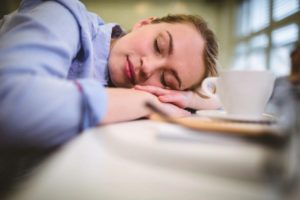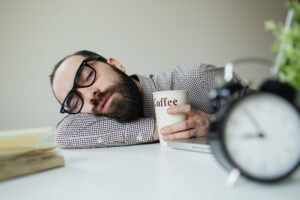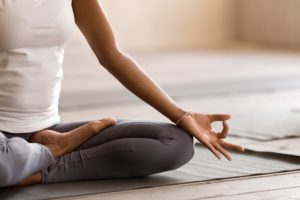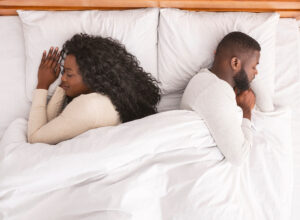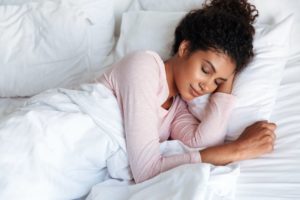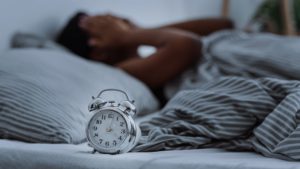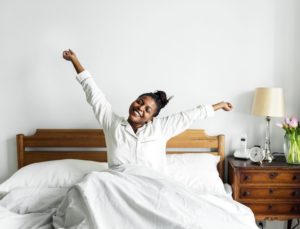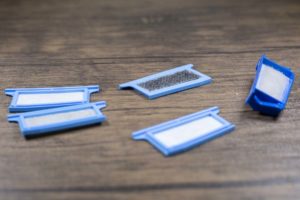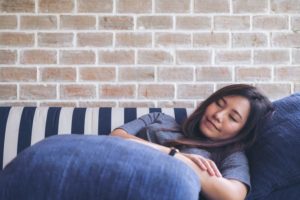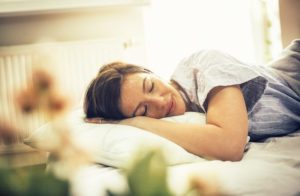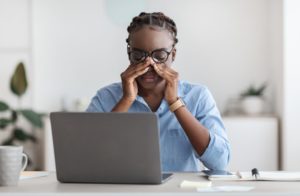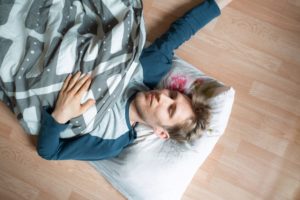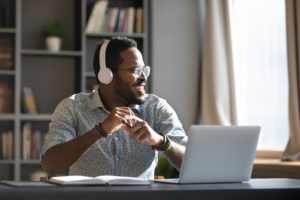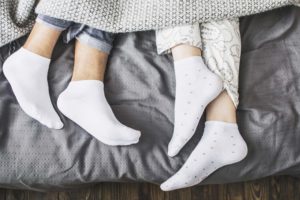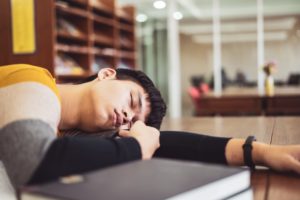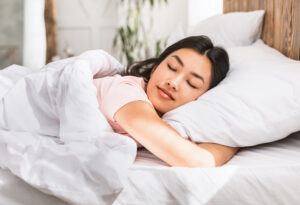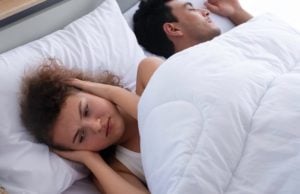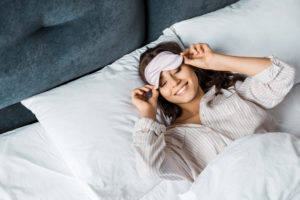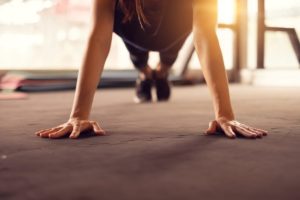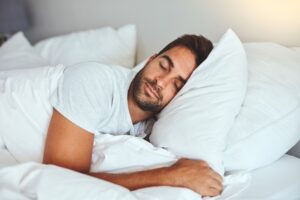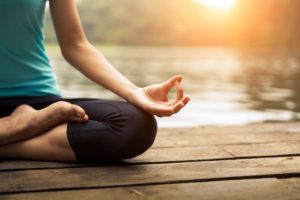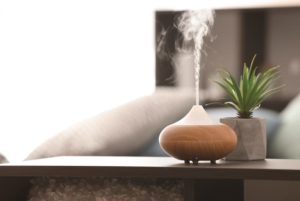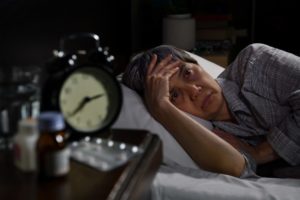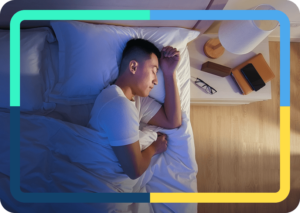What All-Nighters Do To Your Cognition
Everyone has pulled an all-nighter at some point – whether it’s because of a school project, a work shift, or an emergency situation. While going a full night without sleep can provide short-term benefits, it also comes with significant drawbacks that can have lasting effects on your physical and mental wellbeing. We explore the hidden consequences of all-nighters and what to do when you absolutely need to pull one.
Is Your Troubled Sleep a Health Risk?
A variety of issues can cause problems sleeping. Answer three questions to understand if it’s a concern you should worry about.
What Is an All-Nighter?
Pulling an all-nighter involves intentionally staying awake all night and then going about the next day as you normally would. In clinical terms, going 24 hours without sleep is called total sleep deprivation.
Studying for an exam, preparing for an important presentation at work, or cleaning your house for company are common societal pressures that lead people to pulling an all-nighter. In other cases, you might stay up all night simply to binge your favorite show, read a page-turning novel, or party with friends.
However, sleep is vital to the proper functioning of the body and mind, and completely skipping a night of sleep can have some extensive and potentially serious consequences.
What Happens If You Don’t Sleep for 24 Hours?
Experts recommend adults sleep for seven or more hours per night. Pulling an all-nighter clearly interferes with meeting this goal. Skipping a night of sleep has even been found to impair a person’s speed and reaction times as much as alcohol intoxication does.
Cognitive Thinking (or Lack Thereof)
Sleep deprivation has an immediate, negative impact on a person’s ability to think – in multiple ways. You may struggle to remember things and have trouble forming new memories. Not sleeping enough can also make you less alert and impair your ability to judge situations and make decisions.
For these reasons, pulling an all-nighter in order to study may not help much. Students may have trouble learning new things while they are depriving themselves of sleep, which can even continue for days after the all-nighter.
Increased Mood Swings
In healthy adolescents and adults, sleep deprivation can lead to increased feelings of anxiety, depression, anger, and confusion.
The more sleep a person skips, the higher risk of mood changes they face. Compared to other forms of sleep deprivation, going an entire 24 hours without sleep has been found to produce the worst moods. Skipping sleep may also impact a person’s ability to evaluate other people’s emotions, as well as express their own.
More Pain, Less Immunity
Sleep is when the body repairs muscles, and research shows sleep deprivation might alter chemicals involved in this process. Fatigue and low energy levels are more frequent when the body’s muscles and organs don’t have time to recover during sleep. Additionally, studies show that after 24 hours of sleep deprivation, a person becomes more sensitive to pain, pressure, and cold temperatures.
Sleep deprivation can also impact the immune system, which protects the body from infection. Being sleep deprived can make the body less able to fight off illness. Because of how sleep deprivation interacts with the immune system, skipping sleep can also lead to inflammation. When chronic, inflammation can increase a person’s risk for chronic illnesses.

Will an All-Nighter Hurt You in the Long Run?
The negative effects of one all-nighter can continue for over a week. Being continually sleep-deprived, whether from occasional all-nighters or from falling a little short on sleep most nights, can lead to serious negative consequences, including:
- Difficulties at work, school, or in social situations
- Trouble focusing and learning
- Poor mood
- Increased risk of anxiety and depression
- Higher risk of obesity, high blood pressure, diabetes, heart disease, and stroke
- Greater risk of car crashes and other accidents
Is an All-Nighter Ever a Good Idea?
Pulling an all-nighter should not be something anyone does on a regular basis. If you need to pull an all-nighter to keep your job or pass a class, it might be worth it to you in the short-run. However, because it can take a week or even longer to recover from the negative effects of an all-nighter, it’s important to only pull one when it feels absolutely necessary.
The risks of an all-nighter are especially worrisome for anyone who needs to drive, make important decisions, or operate heavy machinery during the day. These situations involve grave potential consequences from daytime sleepiness, microsleeps, impaired attention, decreased reaction time, and slow thinking that can result from pulling an all-nighter.
Our Tips for Staying Up All Night – Only If You Have To
Sometimes life obligations get in the way of meeting sleep guidelines. If you do have to pull an all-nighter, here’s what we recommend trying to minimize the impact of sleep deprivation.
- Use caffeine wisely: Consuming caffeine is not a substitute for sleep, but in the short-term, it can help you feel more alert as you struggle to pull an all-nighter. That said, be careful not to have too much. The recommended amount is no more than 400 milligrams per day, which is about four cups of coffee.
- Try light exposure: Since light exposure promotes alertness, keep bright lights on when you’re pulling an all-nighter. Then, try to get some sunlight to help yourself stay awake the next day.
- Stay safe: Avoid driving, operating machinery, or putting yourself in any situation in which your sleep deprivation could result in an injury or accident.
- Take a nap: Taking a nap the day after experiencing sleep deprivation may help you feel more alert. Aim for a 10 to 20-minute nap. Taking a 30-minute nap may make you wake up feeling groggy.
- Fuel your body with healthy foods: You might be tempted to reach for snack foods or candy when sleep deprived, which can make you even more sleepy and throw off your metabolism. Instead, try to eat balanced, healthy meals that provide quality, long-lasting nutrition.
- Don’t make all-nighters a habit: Sleep is too important to routinely go without. Think of all-nighters as an absolute last resort.

Still have questions? Ask our community!
Join our Sleep Care Community — a trusted hub of sleep health professionals, product specialists, and people just like you. Whether you need expert sleep advice for your insomnia or you’re searching for the perfect mattress, we’ve got you covered. Get personalized guidance from the experts who know sleep best.
References
7 Sources
-
Reynolds, A. C., & Banks, S. (2010). Total sleep deprivation, chronic sleep restriction and sleep disruption. Progress in brain research, 185, 91–103.
https://linkinghub.elsevier.com/retrieve/pii/B9780444537027000063 -
Paruthi, S., Brooks, L. J., D’Ambrosio, C., Hall, W. A., Kotagal, S., Lloyd, R. M., Malow, B. A., Maski, K., Nichols, C., Quan, S. F., Rosen, C. L., Troester, M. M., & Wise, M. S. (2016). Consensus Statement of the American Academy of Sleep Medicine on the Recommended Amount of Sleep for Healthy Children: Methodology and Discussion. Journal of clinical sleep medicine : JCSM : official publication of the American Academy of Sleep Medicine, 12(11), 1549–1561.
https://pubmed.ncbi.nlm.nih.gov/27707447/ -
Khan, M. A., & Al-Jahdali, H. (2023). The consequences of sleep deprivation on cognitive performance. Neurosciences (Riyadh, Saudi Arabia), 28(2), 91–99.
https://pubmed.ncbi.nlm.nih.gov/37045455/ -
Short, M. A., & Louca, M. (2015). Sleep deprivation leads to mood deficits in healthy adolescents. Sleep medicine, 16(8), 987–993.
https://linkinghub.elsevier.com/retrieve/pii/S138994571500698X -
Staffe, A. T., Bech, M. W., Clemmensen, S. L. K., Nielsen, H. T., Larsen, D. B., & Petersen, K. K. (2019). Total sleep deprivation increases pain sensitivity, impairs conditioned pain modulation and facilitates temporal summation of pain in healthy participants. PloS one, 14(12), e0225849.
https://pubmed.ncbi.nlm.nih.gov/31800612/ -
Besedovsky, L., Lange, T., & Haack, M. (2019, July). The sleep-immune crosstalk in health and disease. Physiological Reviews. 99(3), 1325–1380.
https://journals.physiology.org/doi/full/10.1152/physrev.00010.2018 -
Ochab, J. K., Szwed, J., Oleś, K., Bereś, A., Chialvo, D. R., Domagalik, A., Fąfrowicz, M., Ogińska, H., Gudowska–Nowak, E., Marek, T., & Nowak, M. A. (2021). Observing changes in human functioning during induced sleep deficiency and recovery periods. PLOS ONE, 16(9), e0255771.
https://journals.plos.org/plosone/article?id=10.1371/journal.pone.0255771



